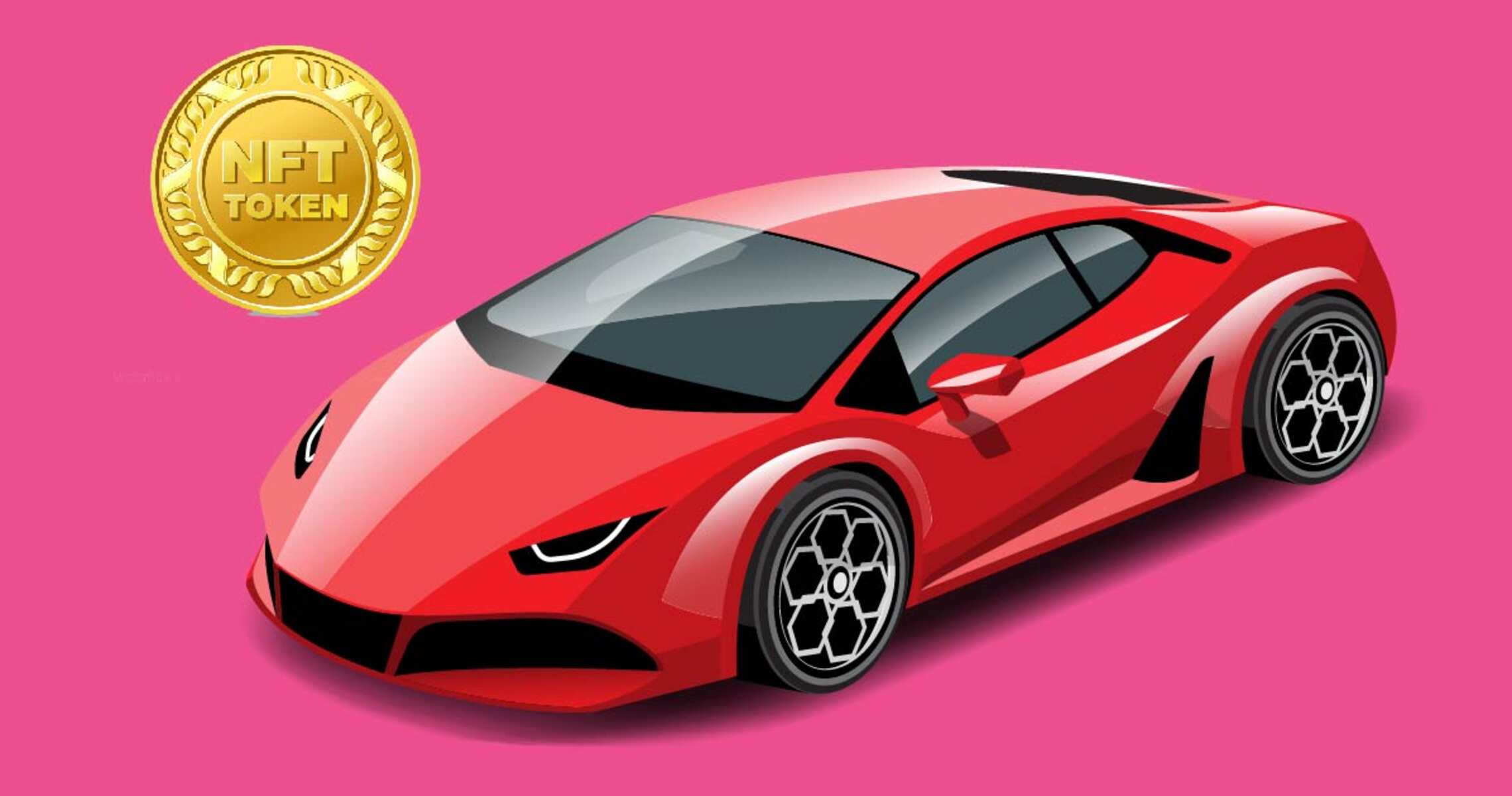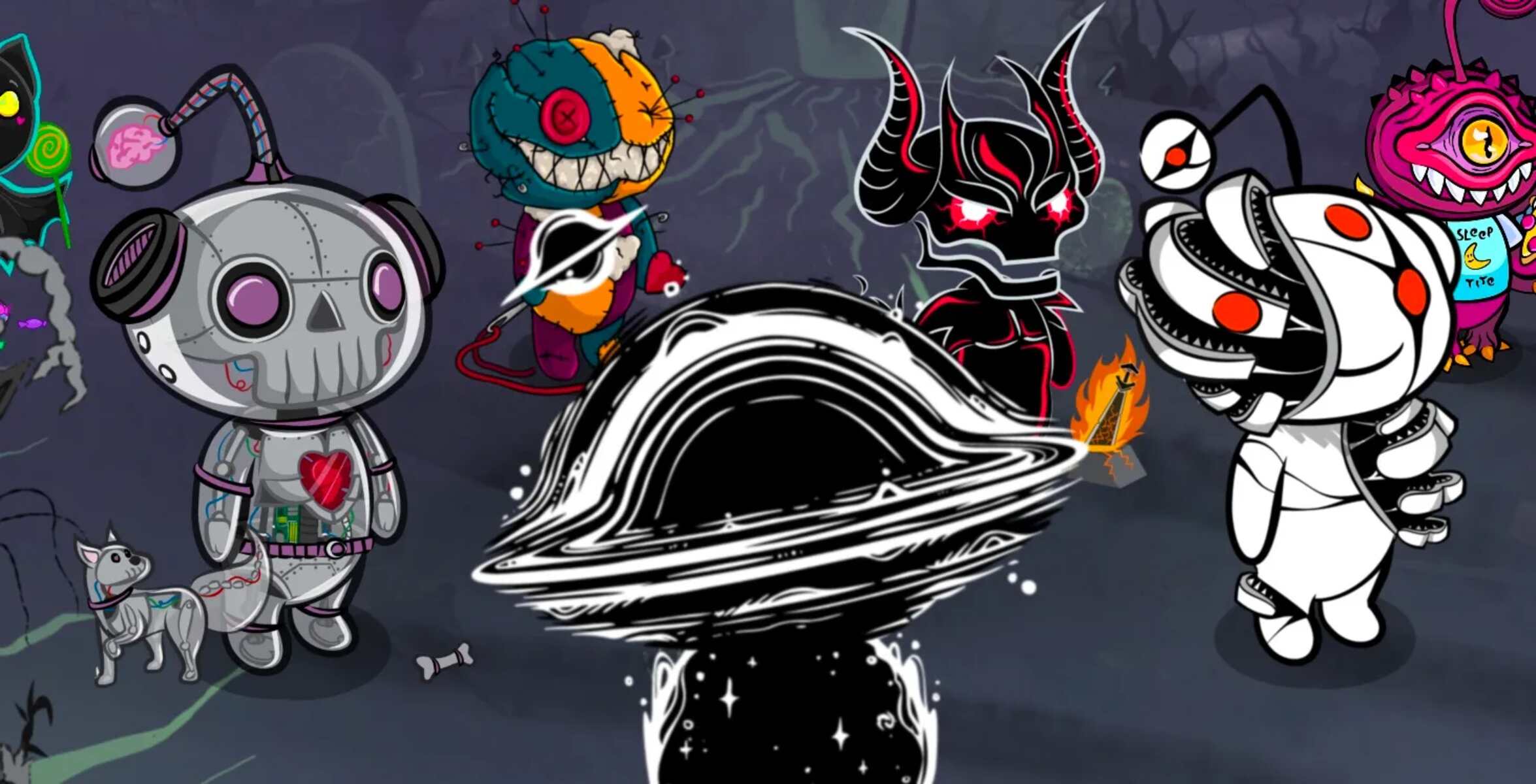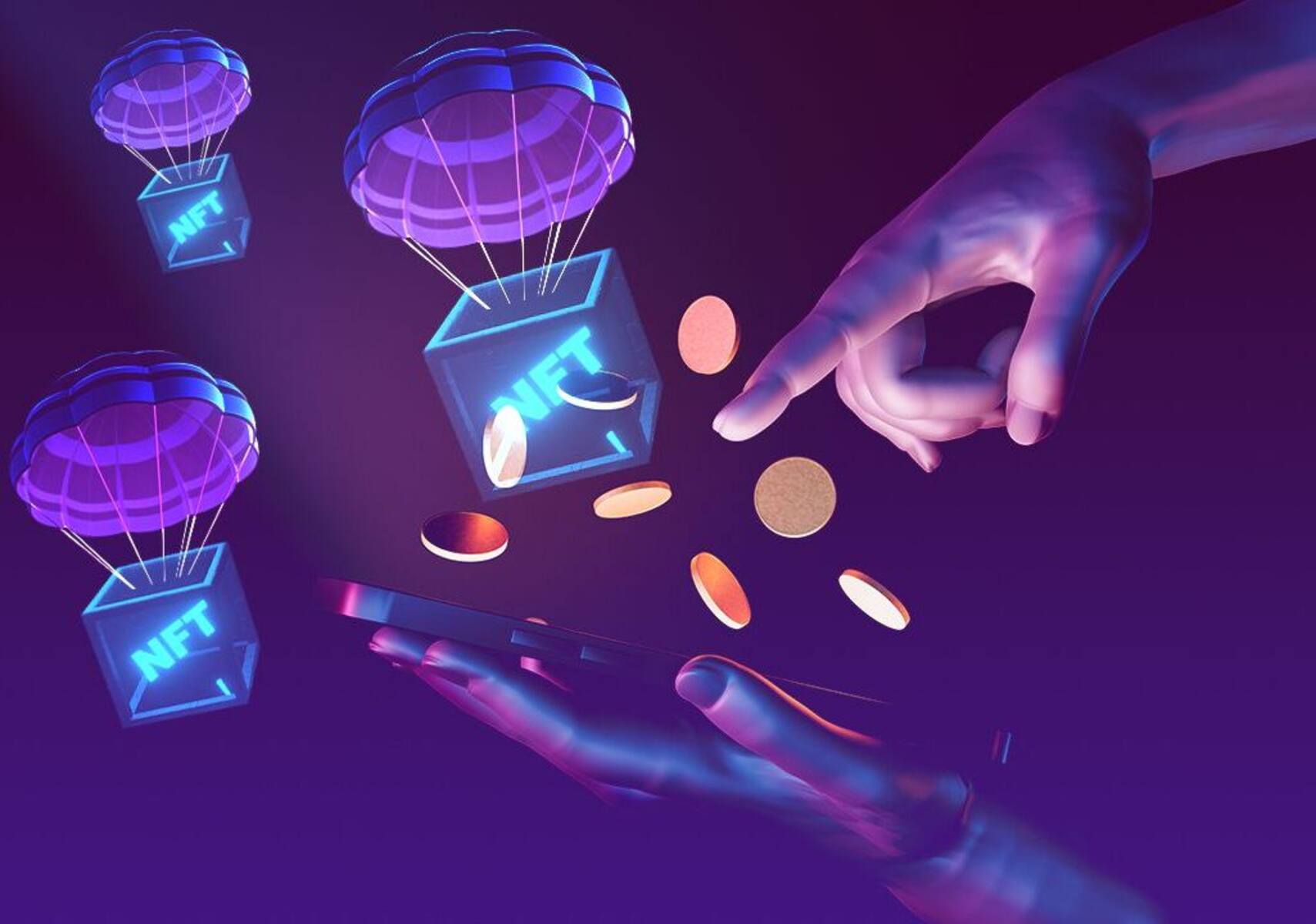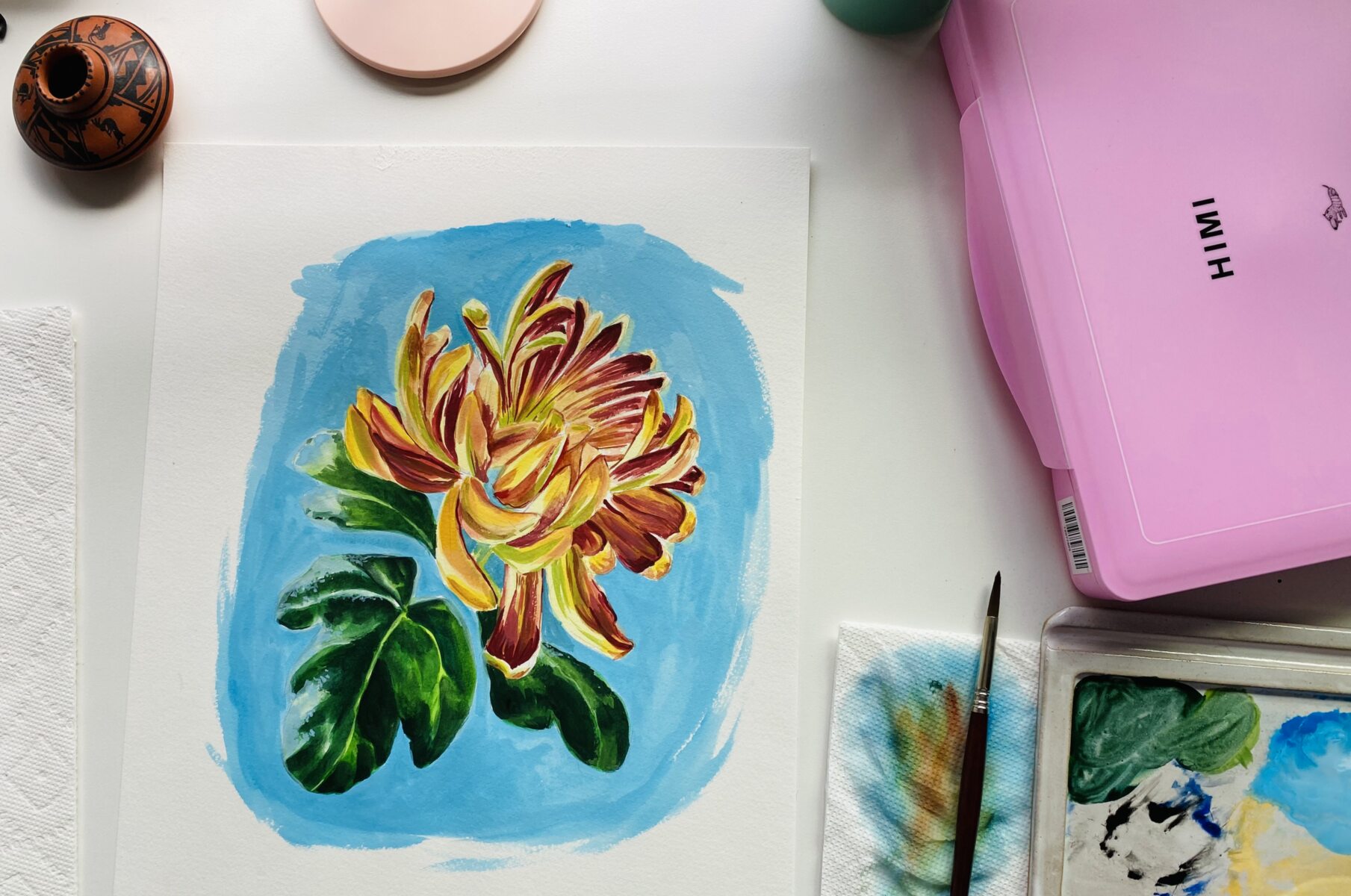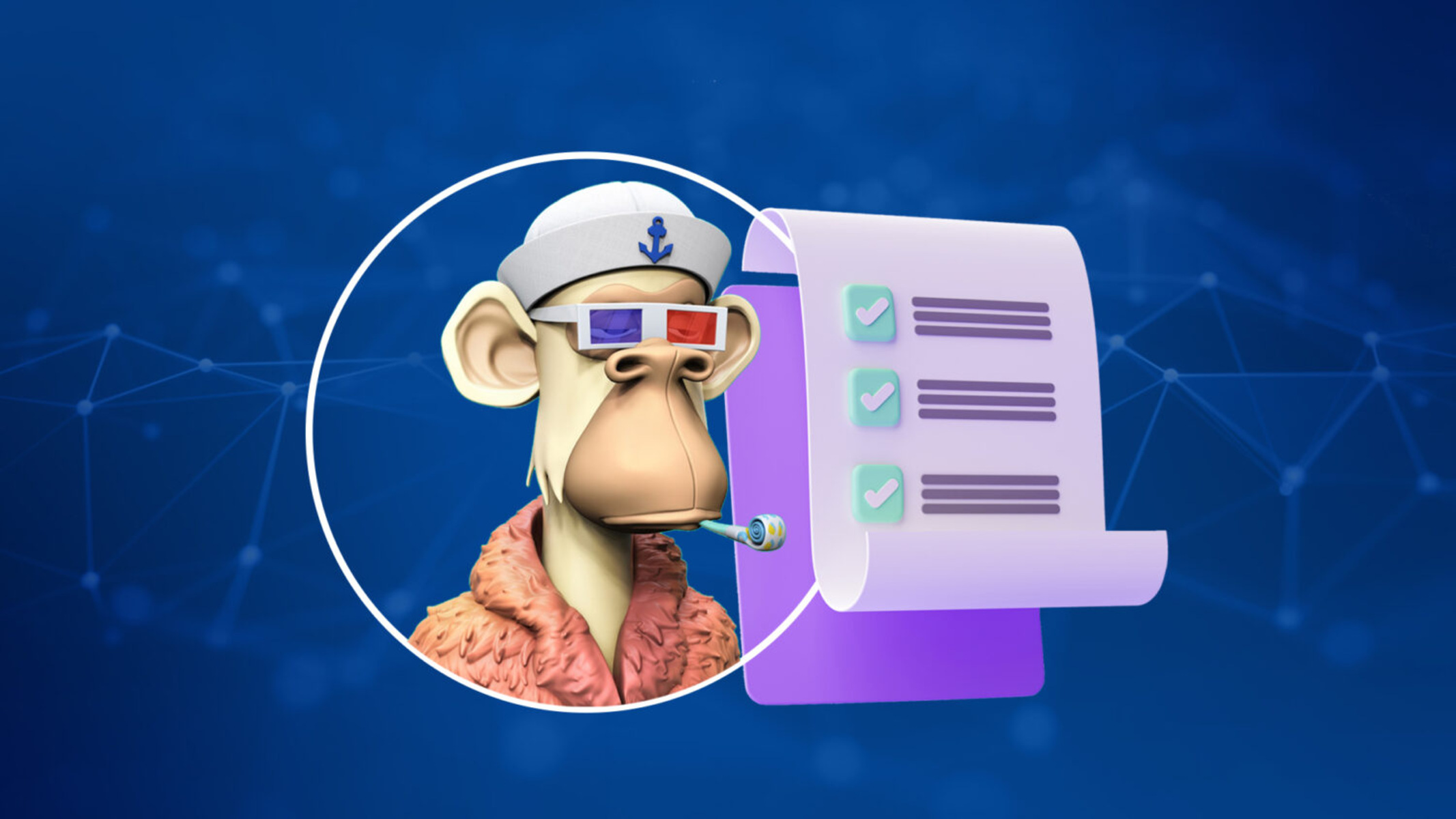Introduction
Welcome to the world of NFTs! In recent years, the rise of Non-Fungible Tokens (NFTs) has taken the digital world by storm. These unique digital assets have revolutionized the way we create, own, and trade digital art, collectibles, virtual real estate, and more. With the increasing popularity of NFTs, a vibrant and dynamic community has emerged around them, offering a space for artists, collectors, enthusiasts, and investors to connect and engage.
NFT communities are online forums, social media groups, and marketplaces where like-minded individuals gather to discuss, showcase, and trade NFTs. They provide a platform for artists to gain exposure for their work, collectors to discover and acquire unique digital assets, and enthusiasts to explore the ever-evolving NFT landscape.
By joining an NFT community, you tap into a network of individuals who share your passion for digital art, collectibles, and blockchain technology. It’s an opportunity to connect with fellow creators, learn from industry experts, and have meaningful conversations about the latest trends and developments in the NFT space.
In this article, we will delve into the world of NFT communities, exploring their types, benefits, and how to find and join them. Additionally, we will discuss the various activities and events that take place within these communities, as well as the challenges they may face.
If you’re eager to dive into the exciting realm of NFTs and want to connect with others who share your enthusiasm, joining an NFT community might be just what you need. So, let’s explore the ins and outs of NFT communities and discover how they can enhance your NFT journey.
The Basics of NFTs
Before we delve into NFT communities, let’s first understand the basics of NFTs themselves. NFTs, or Non-Fungible Tokens, are unique digital assets that exist on a blockchain network, usually on the Ethereum blockchain. Unlike cryptocurrencies such as Bitcoin or Ethereum, which are fungible and can be exchanged on a one-to-one basis, NFTs are indivisible and possess distinct qualities, making them one-of-a-kind.
Each NFT is associated with a digital file, such as an image, video, audio clip, or even virtual real estate. These digital assets can represent anything from digital art, music albums, virtual fashion items, to collectible cards and virtual land. The uniqueness and scarcity of NFTs make them highly sought after by collectors and art enthusiasts alike. Owning an NFT means having proof of authenticity and ownership over the digital asset it represents.
Blockchain technology ensures the transparency, immutability, and security of NFT transactions. Smart contracts, which are self-executing programs running on the blockchain, govern the ownership, transfer, and royalties of NFTs. This enables creators to receive a percentage of future sales every time their NFT is traded, generating a potential source of income.
The market for NFTs has seen a tremendous surge in recent years, attracting artists, celebrities, and investors from various industries. The ability to tokenize and monetize digital assets has opened up new possibilities for creators, offering them direct access to a global audience without traditional gatekeepers.
It’s important to note that NFTs have faced criticism due to concerns about energy consumption, environmental impact, and issues surrounding copyright infringement. However, these challenges are being addressed, with the blockchain community actively working on more environmentally friendly solutions and implementing mechanisms to protect intellectual property rights.
Now that we have a grasp of what NFTs are and their significance in the digital realm, let’s explore the dynamic communities that have sprung up around them, providing a space for individuals to connect, share, and participate in the NFT ecosystem.
Understanding NFT Community
When it comes to NFTs, the community aspect plays a crucial role in shaping the market, fostering collaboration, and driving innovation. An NFT community is a gathering of individuals with a shared interest in Non-Fungible Tokens, encompassing artists, collectors, investors, developers, and enthusiasts.
NFT communities serve as hubs for networking, knowledge exchange, and collaboration within the NFT ecosystem. They provide a platform for individuals to showcase their work, discover new artists and projects, discuss industry trends, and engage in meaningful conversations about the future of NFTs.
One of the primary purposes of an NFT community is to foster a sense of belonging and support among its members. It creates a space where artists can gain recognition for their talent, receive feedback, and connect with potential buyers and collaborators. Collectors and enthusiasts, on the other hand, can explore a wide array of NFTs, discover hidden gems, and engage with the artists themselves.
Moreover, NFT communities often organize events, workshops, and panel discussions where members can expand their knowledge, learn new skills, and gain insights from industry experts. These events provide an opportunity to connect with like-minded individuals, share experiences, and stay up-to-date with the latest developments in the NFT space.
Within an NFT community, collaboration is prevalent. Artists may come together to create unique collections or participate in joint projects, pooling their talents and resources to create something truly exceptional. Collectors might form investment groups, sharing tips and strategies for navigating the ever-evolving NFT market. Developers may collaborate on building innovative platforms and tools that enhance the NFT experience for both creators and collectors.
Furthermore, NFT communities often foster a sense of philanthropy and social impact. Artists may donate a percentage of their NFT sales to charitable causes, while collectors may organize charity auctions to raise funds for various initiatives. This community-driven approach adds depth and purpose to the NFT ecosystem, going beyond mere transactions and contributing to a greater collective good.
In summary, NFT communities serve as powerful engines for creativity, collaboration, and growth within the NFT space. They provide a supportive environment for artists, collectors, enthusiasts, and industry professionals to connect, learn, and explore the vast world of NFTs. Now that we understand the significance of NFT communities, let’s explore the benefits of becoming part of one.
Benefits of Joining an NFT Community
Joining an NFT community offers a myriad of benefits for artists, collectors, enthusiasts, and anyone interested in immersing themselves in the world of Non-Fungible Tokens. These communities provide a supportive and engaging environment that fosters growth, collaboration, and learning. Let’s explore some of the key advantages of becoming part of an NFT community.
1. Networking Opportunities: NFT communities are bustling hubs of creativity and collaboration, bringing together artists, collectors, investors, and industry professionals. By being part of such a community, you can expand your network, forge valuable connections, and have the chance to collaborate on exciting projects. Networking within an NFT community can open doors to new opportunities and partnerships that can propel your career or collection to new heights.
2. Exposure for Artists: For artists looking to gain recognition and exposure for their work, joining an NFT community is a game-changer. These communities provide platforms for artists to showcase their creations, receive feedback, and connect directly with potential buyers. The supportive environment and engaged audience within the community can greatly increase the visibility of an artist’s work, helping them reach a wider audience and establish their brand in the NFT space.
3. Market Insights: NFT communities are treasure troves of market insights, trends, and information. By actively participating in these communities, you can stay updated on the latest happenings in the NFT market. Whether it’s learning about emerging artists, upcoming projects, or changes in the dynamics of the NFT ecosystem, being part of an NFT community ensures that you are at the forefront of the industry, giving you a competitive edge in navigating the ever-evolving market.
4. Learning and Education: NFT communities often organize workshops, tutorials, panel discussions, and other educational events. These events provide valuable opportunities to learn new skills, gain insights from industry experts, and deepen your understanding of the NFT space. Whether you are an artist exploring new techniques, a collector looking to refine your investment strategies, or simply curious about the intricacies of blockchain technology, NFT communities serve as valuable sources of knowledge and learning.
5. Community Support and Feedback: NFT communities are built upon a strong foundation of support and collaboration. Being part of a community means having access to a group of like-minded individuals who share similar interests and passions. This sense of community fosters a supportive environment where members can provide feedback, guidance, and encouragement to one another. For artists, this feedback can be invaluable in refining their craft, while collectors can seek advice and opinions on potential acquisitions.
6. Access to Exclusive Drops and Events: Many NFT communities have partnerships with artists, platforms, and marketplaces, giving their members exclusive access to drops, limited editions, and special events. By being part of such a community, you can gain early access to coveted NFT releases, giving you an advantage in acquiring sought-after digital assets.
Overall, joining an NFT community opens the doors to a plethora of benefits, ranging from networking opportunities and exposure for artists to market insights, learning resources, and community support. By immersing yourself in an NFT community, you can supercharge your NFT journey and thrive in the exciting world of Non-Fungible Tokens.
Types of NFT Communities
NFT communities come in various forms, each catering to different interests, niches, and goals within the NFT ecosystem. Let’s explore some of the common types of NFT communities you can find and how they serve the needs of their members.
1. Artist Communities: These communities focus on bringing together artists of all backgrounds, from digital artists and illustrators to musicians and creators of virtual fashion. Artist communities provide a space for artists to showcase their work, receive feedback, collaborate with other artists, and gain exposure for their NFT collections. These communities often offer additional resources, such as workshops and mentorship programs, to support artists in their creative journey.
2. Collector Communities: Collector communities are composed of individuals passionate about collecting NFTs. These communities offer a platform for collectors to share and discuss their collections, discover new artists, and engage in buying, selling, and trading NFTs. Collector communities often provide valuable insights, tips, and strategies for successful collecting, as well as opportunities to connect with artists and other collectors.
3. Developer Communities: Developer communities within the NFT space focus on blockchain technology, smart contracts, and the technical aspects of creating and deploying NFTs. These communities encourage collaboration, knowledge sharing, and innovation among developers. Members of developer communities can share ideas, discuss best practices, and get involved in building decentralized applications (DApps) and platforms that enhance the NFT experience for both creators and collectors.
4. Niche-based Communities: NFT communities can revolve around specific niches or themes, catering to enthusiasts with shared interests. These communities could focus on specific genres of digital art, virtual real estate, gaming-related NFTs, or even unique collectibles like trading cards or virtual pets. Niche-based communities provide a focused space for individuals to connect with like-minded enthusiasts and explore their shared passion within a specific niche.
5. Platform-specific Communities: With the rise of NFT platforms and marketplaces, many communities have formed around specific platforms. These communities offer a gathering place for users of a particular platform, fostering discussions, troubleshooting, and providing updates on platform features and upcoming releases. Joining a platform-specific community ensures that you stay informed about platform-specific news and have a direct line of communication with the platform developers.
6. Social Media-based Communities: NFT communities can also thrive on social media platforms, such as Twitter, Discord, and Telegram. These communities form around popular hashtags, dedicated channels, or groups where members can engage in discussions, share their latest creations or acquisitions, and connect with others who share their passion for NFTs. Social media-based communities provide a convenient and accessible way to connect with a broader network of NFT enthusiasts.
Remember, these types of communities are not mutually exclusive, and many individuals may be active members in multiple types of communities, depending on their interests and goals within the NFT ecosystem. Exploring different types of NFT communities can help you find the right space to connect with like-minded individuals and further enrich your experience in the world of Non-Fungible Tokens.
How to Find and Join NFT Communities
Joining an NFT community can be an exciting step to immerse yourself in the world of Non-Fungible Tokens and connect with like-minded individuals. Here are some tips on how to find and join NFT communities:
1. Research NFT Platforms: Start by researching popular NFT platforms and marketplaces. Many platforms have their own communities and forums where users can interact and engage. Explore the community sections of these platforms to find discussions, announcements, and events that may interest you.
2. Social Media Exploration: Utilize social media platforms such as Twitter, Discord, and Telegram to discover NFT communities. Look for hashtags related to NFTs and explore the discussions happening around them. Follow influential individuals in the NFT space and engage in conversations to gain visibility and find recommendations for active communities.
3. Attend Virtual Events and Webinars: Stay informed about virtual events and webinars focused on NFTs. These events are often hosted by industry experts, platforms, and influencers, and provide opportunities to connect with other attendees and discover new communities. Participate actively in discussions and networking sessions to find individuals with similar interests.
4. Join Online Forums and Subreddits: Online forums and subreddits dedicated to NFTs and blockchain technology are great places to find and join communities. Platforms like Reddit have active NFT communities with dedicated threads for discussions, announcements, and sharing of NFT-related news. Engage in conversations, ask questions, and contribute valuable insights to these communities.
5. Explore Niche Communities: Depending on your interests within the NFT space, consider joining niche communities. These communities may focus on specific genres of digital art, virtual real estate, or gaming-related NFTs. Search for communities that align with your passions and engage with fellow enthusiasts who share the same niche interest.
6. Engage in Discord Channels: Discord is a popular platform for NFT communities, offering dedicated channels for discussions, project updates, and collaboration. Look for active Discord channels related to NFTs, join them, and immerse yourself in the conversations happening within the community. Discord can be a great place to connect with artists, collectors, developers, and enthusiasts.
7. Attend Offline Meetups and Events: When possible, attend offline meetups, conferences, and exhibitions focused on NFTs and blockchain technology. These events provide excellent opportunities to meet industry professionals, artists, and collectors in person. Take advantage of networking sessions and engage in meaningful conversations to build connections and explore potential NFT communities.
Remember that finding the right NFT community may take some time and experimentation. Explore different platforms and communities, actively participate in discussions, and engage with fellow members. The more involved you become, the more likely you are to find a community that aligns with your interests and goals within the NFT space.
Contributing to NFT Communities
Being an active contributor to NFT communities goes beyond simply being a member. It involves actively engaging, sharing knowledge, and adding value to the community. Here are some ways you can contribute to NFT communities:
1. Share Your Knowledge and Expertise: If you have experience or expertise in a particular area of NFTs, share your knowledge with the community. Offer insights, tips, and strategies that can help others navigate the NFT landscape. Whether it’s discussing different artistic techniques, investment strategies, or technical aspects of creating NFTs, your contributions can provide valuable guidance to fellow community members.
2. Provide Constructive Feedback: Engage in discussions and provide constructive feedback to artists, collectors, and projects within the community. Thoughtful feedback can help artists improve their work, collectors make better investment decisions, and projects refine their offerings. By offering constructive criticism, you contribute to the growth and development of the community as a whole.
3. Collaborate with Other Community Members: Build connections and collaborate with other community members on various projects and initiatives. Join forces with artists, collectors, and developers to create unique collections, events, or charity initiatives. Collaborations not only foster community spirit but also showcase the collective talent and creativity within the community.
4. Support Emerging Artists: NFT communities are fantastic platforms for discovering and supporting emerging artists. Take the time to explore the works of lesser-known artists within the community and provide them with recognition, feedback, and encouragement. Supporting emerging artists not only helps them gain exposure but also adds diversity and depth to the community’s artistic offerings.
5. Organize Community Events and Competitions: Take the initiative to organize events, challenges, or competitions within the community. This can range from art contests and virtual exhibitions to NFT giveaways or educational workshops. By organizing such events, you create opportunities for community members to showcase their skills, learn from one another, and come together in celebration of their shared passion.
6. Offer Mentorship and Guidance: Share your experiences and offer mentorship to newcomers within the community. Help them navigate the NFT space, familiarize themselves with different platforms, and understand market trends. Guiding and supporting newcomers not only encourages their growth but also contributes to a welcoming and inclusive environment for all.
7. Active Participation and Engaging Discussions: Engage in discussions, ask questions, and contribute meaningfully to conversations happening within the community. Share your thoughts, insights, and opinions while being respectful of different viewpoints. Active participation fosters a sense of community and encourages others to collaborate and share their own perspectives.
Remember, contributing to NFT communities is about being an active and supportive member. By sharing your knowledge, collaborating with others, supporting emerging artists, and engaging in discussions, you help create a vibrant and thriving community that benefits everyone involved.
NFT Community Events and Activities
NFT communities are known for their diverse range of events and activities that bring members together, foster collaboration, and promote engagement within the community. These events and activities contribute to the vibrancy and sense of belonging within NFT communities. Let’s explore some common events and activities you can expect to find:
1. Virtual Exhibitions: Virtual exhibitions are online showcases where artists display their NFT artwork. These exhibitions allow artists to gain exposure, build their portfolios, and connect with potential buyers and collectors. Virtual exhibitions often include immersive galleries where visitors can explore the artwork in a virtual environment, enhancing the overall viewing experience.
2. AMAs (Ask Me Anything) and Q&A Sessions: AMAs and Q&A sessions provide an opportunity for community members to directly engage with artists, collectors, and industry experts. Participants can ask questions, seek advice, and gain valuable insights from experienced individuals within the NFT space. These interactive sessions foster knowledge exchange and build connections between community members.
3. Workshops and Tutorials: Workshops and tutorials are educational events that aim to teach community members specific skills, techniques, or best practices related to NFTs. These sessions can cover topics like digital art creation, smart contract development, or investment strategies. Workshops and tutorials contribute to the growth and development of community members by equipping them with valuable knowledge and skills.
4. Art Contests and Challenges: Art contests and challenges within NFT communities encourage artists to push their creative boundaries and showcase their talents. These events often have specific themes or requirements and allow artists to compete for recognition and prizes. Art contests and challenges not only provide opportunities for artists to gain exposure but also inspire community members to appreciate and engage with different artistic styles and techniques.
5. Charity Auctions: NFT communities often organize charity auctions where artists and collectors donate NFTs to raise funds for charitable causes. These auctions not only contribute to important causes but also create a sense of community spirit and social impact. By participating in charity auctions, community members can support meaningful initiatives and make a positive difference through their involvement in the NFT ecosystem.
6. Virtual Social Events and Networking Sessions: To encourage networking and social interaction, NFT communities often host virtual social events and networking sessions. These events can include activities like virtual meetups, live performances, game nights, or casual discussions. Such events provide an opportunity for community members to connect, forge relationships, and build a strong support network within the community.
7. Educational Webinars and Panel Discussions: Educational webinars and panel discussions within NFT communities feature industry experts, artists, collectors, and developers discussing various topics. These sessions can cover trends in the NFT market, technological advancements, legal considerations, or the impact of NFTs on different industries. Webinars and panel discussions enable the community to stay informed and foster intellectual discourse on important issues.
These are just a few examples of events and activities that take place within NFT communities. The range and variety of events may vary depending on the community, but the underlying goal is to engage members, encourage collaboration, and facilitate the growth and development of individuals within the community.
NFT Community Marketplaces
NFT community marketplaces have emerged as vibrant platforms where artists, collectors, and enthusiasts can buy, sell, and trade Non-Fungible Tokens. These marketplaces are specifically tailored to cater to the needs and interests of the NFT community, offering a seamless and specialized experience. Let’s explore some key aspects of NFT community marketplaces:
1. Curated Collections: NFT community marketplaces often feature curated collections that highlight exceptional artwork, collectibles, or projects within the community. These collections showcase the diverse range of NFTs available and help bring exposure to outstanding artists and unique offerings. Curated collections make it easier for collectors to discover high-quality NFTs and support artists within their community.
2. Artist Spotlight: Many NFT community marketplaces prioritize giving artists a prominent spotlight. They actively promote and showcase artists, providing them with visibility and helping them gain recognition for their work. Artist spotlights can be featured on the marketplace’s homepage, social media channels, or through dedicated sections that highlight the artists’ profiles and creations.
3. Community Verification: To ensure authenticity and build trust within the community, NFT community marketplaces often implement community verification processes. This involves verifying the identity and ownership of artists and sellers within the community to protect buyers from fraudulent or unauthorized NFTs. Community verification adds an additional layer of security, enhancing the credibility of the marketplace and the NFTs listed.
4. Community Token Utility: Some NFT community marketplaces introduce their own community tokens, which are used to unlock additional features, access exclusive content, or provide governance rights within the platform. These tokens create an ecosystem where community members can actively participate and engage. Holding community tokens may grant various benefits, such as priority access to certain drops or discounts on platform fees.
5. Community-Driven Marketplaces: Certain NFT community marketplaces are entirely community-driven, allowing community members to curate, promote, and sell their own NFTs. These marketplaces empower artists and collectors, giving them control over their listings, pricing, and promotional efforts. Community-driven marketplaces foster a sense of ownership and collaboration within the community, enhancing the overall experience for all participants.
6. Social Engagement and Discussion: NFT community marketplaces often incorporate social features that encourage engagement and discussion among community members. These features can include comment sections, forums, or chat functions where users can engage in conversations about specific NFTs, share insights, or ask questions. Social engagement within the marketplace creates a sense of community and facilitates connections between artists, collectors, and enthusiasts.
7. Royalties and Secondary Sales: Many NFT community marketplaces support the automatic distribution of royalties to artists upon secondary sales. This means that artists receive a percentage of the sale proceeds every time their NFTs are resold on the marketplace. Royalty mechanisms provide ongoing support to artists and incentivize the creation of high-quality NFTs within the community.
NFT community marketplaces play a vital role in connecting artists and collectors within a focused and supportive environment. They offer specialized features, curated collections, and a sense of community that fosters trust, engagement, and growth for all participants in the NFT ecosystem.
Challenges in NFT Communities
While NFT communities provide a wealth of opportunities and a supportive environment, they are not without their challenges. It’s important to acknowledge and address these challenges to ensure the continued growth and sustainability of NFT communities. Let’s explore some of the common challenges faced by NFT communities:
1. Accessibility and Inclusivity: One of the primary challenges in NFT communities is ensuring accessibility and inclusivity for all individuals. The NFT space can be intimidating for newcomers due to technical barriers, high transaction costs, and the need for cryptocurrency ownership. Community outreach efforts must focus on educating and providing resources to help newcomers navigate these challenges, making the space more accessible to a wider audience.
2. Scams and Fraud: Scams and fraud are inherent risks in the NFT ecosystem, and NFT communities are not immune to them. Fake projects, counterfeit NFTs, and phishing attempts can harm individuals within the community. Education, due diligence, and community verification processes are essential in mitigating these risks. It’s crucial to stay vigilant, conduct thorough research, and rely on trusted platforms and marketplaces when engaging in NFT transactions.
3. Environmental Impact: The environmental impact of NFTs, particularly due to the energy consumption associated with blockchain networks, has garnered significant attention. NFT communities need to address these concerns by encouraging awareness, advocating for sustainable practices, and supporting eco-friendly blockchain solutions. Striking a balance between innovation and environmental responsibility is crucial to maintain the long-term viability of NFT communities.
4. Intellectual Property Rights: NFTs have raised complex issues concerning intellectual property rights. Artists may face challenges in protecting their original work, while collectors may encounter legal ambiguities regarding the ownership and usage rights of NFTs. NFT communities should focus on educating their members about copyright laws and facilitating discussions around fair usage and licensing within the NFT space.
5. Market Volatility and Speculation: The NFT market’s inherent volatility can be a challenge for both artists and collectors. Artists may face price fluctuations, which can impact their income and sustainability. Collectors need to navigate the market carefully to avoid speculation risks. Building transparency, providing market insights, and creating educational resources within the community can help individuals make informed decisions amidst the market’s fluctuations.
6. Community Governance: As NFT communities grow, the need for effective community governance becomes crucial. Ensuring that decision-making processes are transparent, inclusive, and representative of community interests is essential to maintaining trust and harmony within the community. Implementing mechanisms for community members to participate in decision-making and addressing conflicts or disputes in a fair and respectful manner are important aspects of community governance.
7. Diversity and Representation: NFT communities should strive for diversity and inclusion, both in terms of artistic styles and the individuals represented within the community. Encouraging underrepresented voices, supporting artists from different backgrounds, and actively fostering an inclusive environment can enrich the community’s cultural and artistic offerings.
Addressing these challenges requires proactive measures from NFT communities, platforms, and individuals within the ecosystem. By recognizing and collectively addressing these challenges, NFT communities can become stronger, more resilient, and inclusive spaces for artists, collectors, and enthusiasts to thrive.
Conclusion
NFT communities have revolutionized the way we create, own, and trade digital assets, offering a vibrant and dynamic space for artists, collectors, enthusiasts, and investors to connect and engage. By joining an NFT community, individuals gain access to a supportive network of like-minded individuals who share their passion for NFTs and blockchain technology.
Throughout this article, we explored the basics of NFTs, the significance of NFT communities, and the benefits of becoming a part of one. We also discussed various types of NFT communities, how to find and join them, and the different ways one can contribute to these communities.
NFT communities provide numerous opportunities for networking, learning, and collaboration. They offer curated collections, artist spotlights, and community-driven marketplaces that enable artists to gain exposure and collectors to discover unique NFTs. Engaging in events, workshops, and challenges within the community facilitates growth, knowledge exchange, and skill development.
However, NFT communities also face challenges. These challenges include accessibility, scams, environmental impact, intellectual property concerns, market volatility, and governance issues. Recognizing and addressing these challenges is essential for the sustainable development and inclusivity of NFT communities.
In conclusion, NFT communities are thriving ecosystems that foster creativity, collaboration, and innovation within the NFT space. By actively participating in these communities, individuals can enhance their NFT journey, connect with like-minded individuals, and contribute to the growth and development of the NFT ecosystem as a whole. Embracing the opportunities, addressing the challenges, and supporting one another, NFT communities have the potential to shape the future of art, collectibles, and digital ownership in a transformative and inclusive manner.









